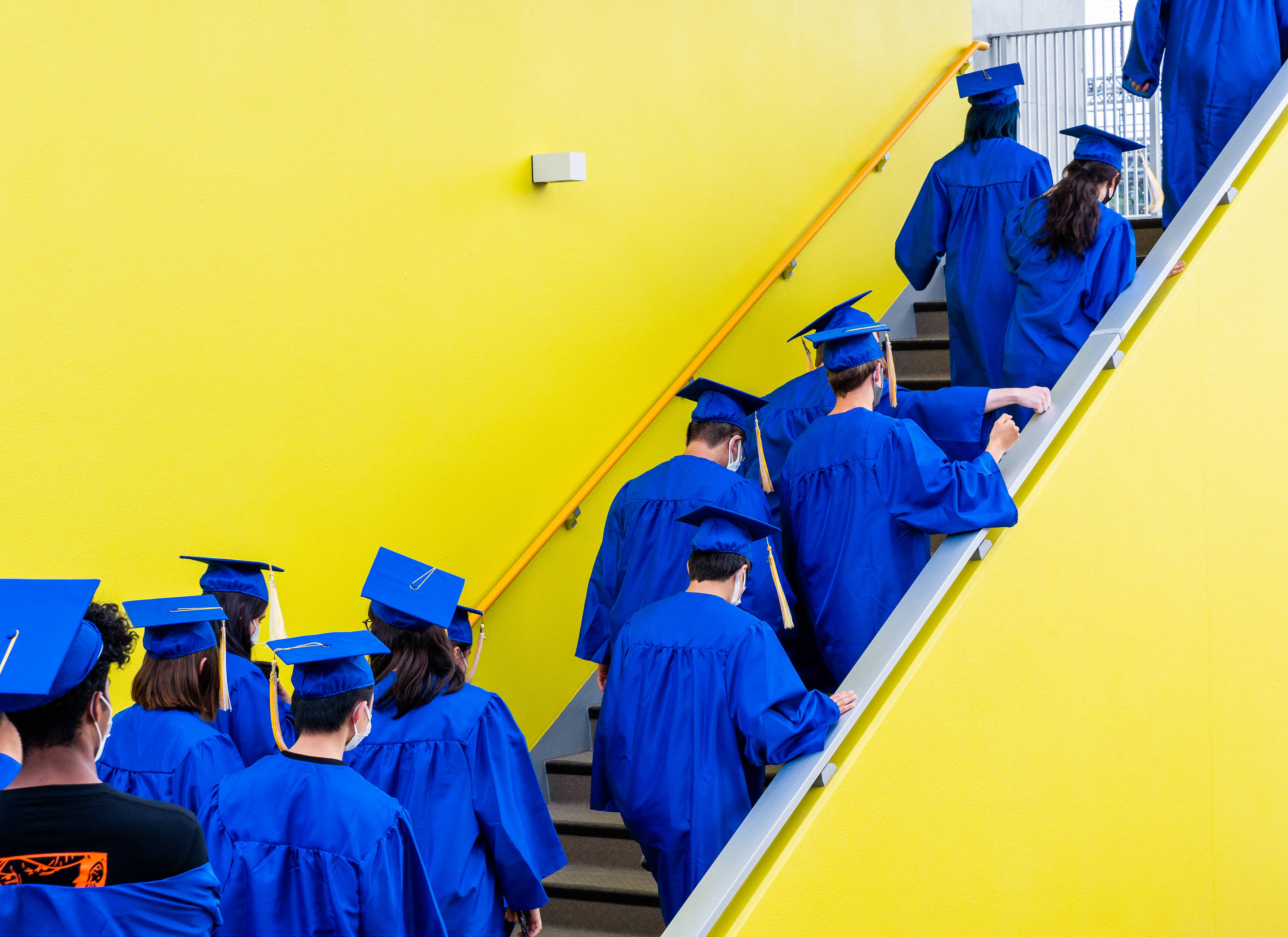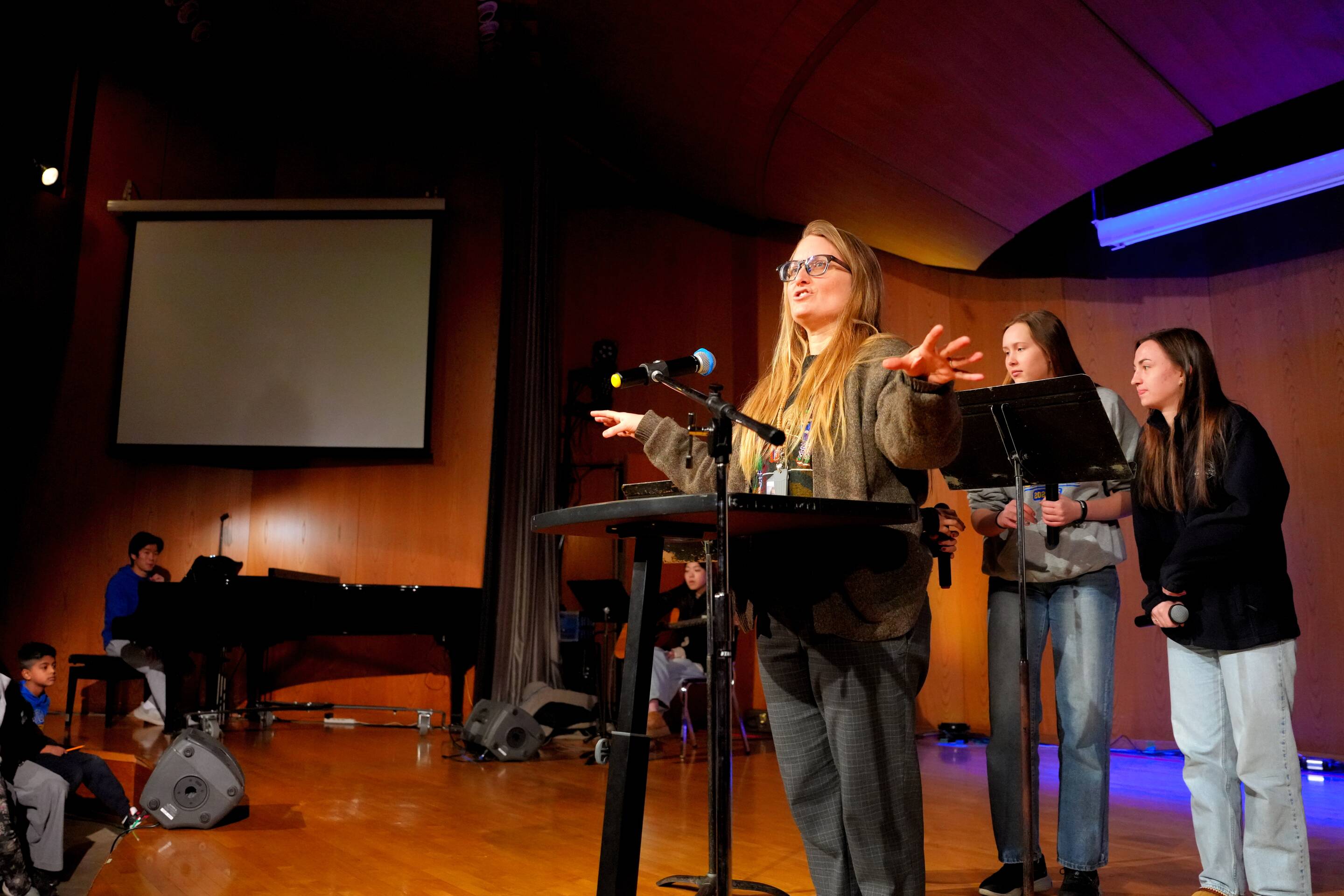Revisiting our Student Objectives
10/05/2021 10:40
Tom McGlothlin, Academic Counselor and Bible Department Head

CAJ’s student objectives articulate who we want our students to become, shaping every curriculum and program choice. Because of the key role that our objectives play in guiding our school, an important aspect of our ongoing school improvement process is regular review of our student objectives to ensure that they match and clearly express what we desire for our students.
Through our 2018 accreditation review, CAJ saw the need to consider how our student objectives connect to “Global Competencies” and “21st-Century Skills.” “Global Competencies,” as defined by our accrediting agency, are the skills widely recognized as important for navigating and engaging in diverse contexts in a globalized world. “21st-Century Skills” is a common term for the skills needed for success in tomorrow’s workplace, with a special focus on creativity, innovation, and design.
Over the course of the past two academic years, a group of department heads and other teacher leaders met regularly to review our student objectives. We studied Global Competencies and 21st-Century Skills, considered how they might connect to our school vision of equipping students to serve Japan and the world for Christ, and assessed whether our existing student objectives needed revision in light of these connections.
We concluded that CAJ’s existing student objectives – responsible learners, discerning thinkers, productive collaborators, effective communicators, and faithful caretakers – continue to capture what CAJ wants for its students, although with two modifications.
First, we moved “faithful caretakers” to the beginning of the list in order to highlight how this objective, rooted in our Christian understanding of God’s purpose for humanity, provides the context within which the other objectives find their meaning and significance. We want students to learn responsibly and collaborate productively, for example, in order to fulfill their God-given role of faithful caretaking.
Second, we revised the descriptive phrases connected to each student objective to communicate more clearly what each objective means and, as appropriate, how it might connect to Global Competencies and 21st-Century Skills. One of the existing descriptors of “productive collaborators,” for example, was “Work effectively with others.” Seeking to clarify and deepen this descriptor, we rephrased it to read, “Create a positive environment that encourages respect, creativity, and flexibility.”
The reordered list of objectives newly emphasizes the purpose of all learning. At the same time, the revised descriptors highlight the themes of global engagement, appreciation for and engagement with diversity, initiative and perseverance in learning, and the valuing and pursuit of beauty. We hope that upcoming blog posts focusing on each student objective will further illuminate these important principles that guide our education at CAJ!

CAJ’s student objectives articulate who we want our students to become, shaping every curriculum and program choice. Because of the key role that our objectives play in guiding our school, an important aspect of our ongoing school improvement process is regular review of our student objectives to ensure that they match and clearly express what we desire for our students.
Through our 2018 accreditation review, CAJ saw the need to consider how our student objectives connect to “Global Competencies” and “21st-Century Skills.” “Global Competencies,” as defined by our accrediting agency, are the skills widely recognized as important for navigating and engaging in diverse contexts in a globalized world. “21st-Century Skills” is a common term for the skills needed for success in tomorrow’s workplace, with a special focus on creativity, innovation, and design.
Over the course of the past two academic years, a group of department heads and other teacher leaders met regularly to review our student objectives. We studied Global Competencies and 21st-Century Skills, considered how they might connect to our school vision of equipping students to serve Japan and the world for Christ, and assessed whether our existing student objectives needed revision in light of these connections.
We concluded that CAJ’s existing student objectives – responsible learners, discerning thinkers, productive collaborators, effective communicators, and faithful caretakers – continue to capture what CAJ wants for its students, although with two modifications.
First, we moved “faithful caretakers” to the beginning of the list in order to highlight how this objective, rooted in our Christian understanding of God’s purpose for humanity, provides the context within which the other objectives find their meaning and significance. We want students to learn responsibly and collaborate productively, for example, in order to fulfill their God-given role of faithful caretaking.
Second, we revised the descriptive phrases connected to each student objective to communicate more clearly what each objective means and, as appropriate, how it might connect to Global Competencies and 21st-Century Skills. One of the existing descriptors of “productive collaborators,” for example, was “Work effectively with others.” Seeking to clarify and deepen this descriptor, we rephrased it to read, “Create a positive environment that encourages respect, creativity, and flexibility.”
The reordered list of objectives newly emphasizes the purpose of all learning. At the same time, the revised descriptors highlight the themes of global engagement, appreciation for and engagement with diversity, initiative and perseverance in learning, and the valuing and pursuit of beauty. We hope that upcoming blog posts focusing on each student objective will further illuminate these important principles that guide our education at CAJ!




